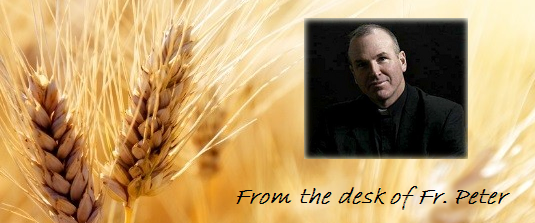Peace and Grace to you!
The Kingdom of Heaven experience requires a radical break from natural to spiritual maturity.
In the first reading, David has an opportunity to “payback” Saul for all his meanness and dirty dealing toward David. Saul is jealous and behaves as jealous is: hateful and mean. David, on his part, shows a preference and a reverence for spiritual maturity through a willful desire to obey God’s Word. David’s love for God moves him beyond seeking his own form/desire of justice into seeking what pleases God. David’s experience of receiving injustice has not hardened his heart, it has brought about the divine fruit and trait of compassion. He shows wisdom and spiritual maturity, magnanimity of character, by showing mercy to Saul. David recognizes that God established Saul in leadership, and it is God who will deal with Saul, just as God will deal with David himself. Is this perspective valued toward public leaders and leaders of faith communities today?
In the Gospel we continue with the Sermon on the Plain. Jesus knows well that human nature is strongly inclined to move in the wrong direction (concupiscence). He sets forth some radical instructions. They’re radical because they move us beyond our natural inclinations to a spiritual maturity that leads us into a Kingdom of Heaven experience and friendship with God. If Jesus is delivering this set of principles to us, then he is instructing us to be his disciples and he will help us live them out. No matter how difficult and no matter if we fail, we must be found in pursuit of living the principles of Christian life as best as we can. “Be merciful, just as your Father is merciful” is not an option to the believer but a goal at heart. Putting away an insult or criticism saves a life (you shall not kill). Saving a life saves the world one at a time. Blessings to you! +++ Fr. Peter

